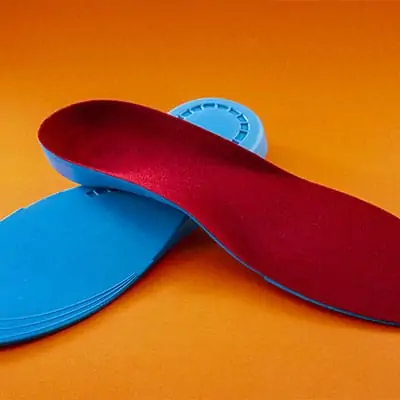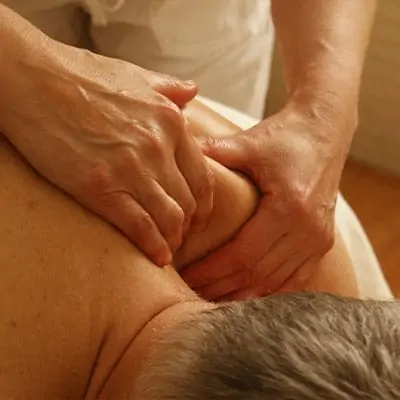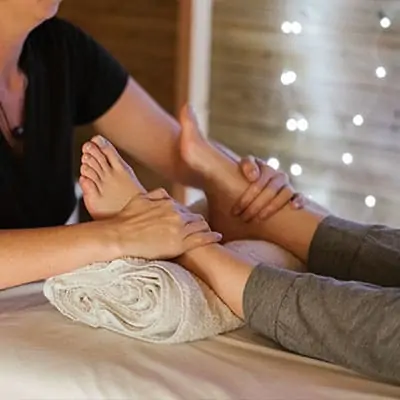Discover expert Dupuytren’s contracture treatment at Cambridge Physiotherapy & Rehab Center. Our dedicated team offers personalized plans combining advanced techniques and compassionate care. We’re devoted to enhancing hand function, reducing discomfort and slowing Dupuytren’s contracture progression.
Understanding Dupuytren’s Contracture
Dupuytren’s contracture is a hand condition that gradually causes the fingers (usually the ring and little fingers) to bend towards the palm, restricting their movement. This condition arises from the thickening and tightening of the fascia—a layer of fibrous tissue in the palm.
Causes and Risk Factors
The exact cause of Dupuytren’s contracture is unknown, but it is thought to involve a combination of genetic and environmental factors. The condition progresses slowly and can vary in severity from mild discomfort to significant hand deformity, impacting daily activities.
While the exact cause is unknown, several factors are known to increase the risk of developing this condition:
- Genetics: A family history of Dupuytren’s contracture significantly increases the risk.
- Age: The condition is more common in people over 50.
- Sex: Men are more likely to develop the condition and often experience more severe forms.
- Ancestry: Individuals of Northern European or Scandinavian descent are at a higher risk.
- Lifestyle Factors: Smoking and alcohol use have been associated with an increased risk of Dupuytren’s contracture.
- Medical Conditions: People with diabetes and certain types of epilepsy may be at a higher risk.
Symptoms to Watch Out For
The primary symptom of Dupuytren’s contracture is the gradual development of a fibrous cord under the skin of the palm, leading to restricted finger movement. Early signs include:
- Nodules: Thickened nodules may develop in the palm, which can be sensitive to touch.
- Pitting: Skin on the palm may appear puckered or dimpled.
- Finger Contracture: Over time, fingers may begin to pull towards the palm, and straightening them fully becomes difficult.
Assessment is typically based on a physical examination. The “tabletop test,” where the hand cannot be laid flat on a surface, is often used to gauge the severity of the contracture.
Personalized Physiotherapy for Dupuytren’s Contracture
At Cambridge Physiotherapy & Rehab Center, we emphasize a comprehensive physiotherapy approach for the treatment of Dupuytren’s contracture in Cambridge, focusing on enhancing hand function and managing symptoms.
- Initial Comprehensive Assessment: Our treatment starts with a thorough evaluation to understand the extent of your condition and its impact on your hand function and daily life. This assessment guides the development of your personalized treatment plan.
- Customized Hand Therapy: Our physiotherapy plans may include exercises to improve hand strength and flexibility, and to maintain the range of motion in the fingers. These exercises are designed to be gentle, aiming to reduce the progression of contracture without exacerbating the condition.
- Manual Therapy Techniques: We use manual therapy to manage discomfort and improve hand movement. Techniques such as soft tissue massage and gentle stretching can help reduce the tightness of the fascia in the palm.
- Ergonomic and Lifestyle Modification Advice: We offer advice on adjusting daily activities to manage your condition effectively and prevent its progression. This includes ergonomic modifications at work and home to reduce strain on your hands.
Why Choose Cambridge Physiotherapy & Rehab Center for Dupuytren’s Contracture Treatment
By choosing Cambridge Physiotherapy & Rehab Center for your Dupuytren’s contracture treatment in Cambridge, you benefit from:
- Comprehensive Physiotherapy Care: Our team is well-versed in treating hand conditions, using tailored approaches to improve your quality of life.
- Personalized Treatment Plans: Your treatment plan is customized to your specific needs, focusing on functional improvements and symptom management.
- Holistic Support: Beyond physiotherapy, we offer comprehensive care including lifestyle adjustments and ergonomic advice to enhance your overall well-being.
Comprehensive Treatment Services
Cambridge Physiotherapy & Rehab Center is committed to offering a wide range of services, extending beyond physiotherapy, to address various musculoskeletal conditions and injuries, ensuring you receive holistic care tailored to your needs.
Take Control of Your Hand Health
If Dupuytren’s contracture is affecting your daily activities, reach out to Cambridge Physiotherapy & Rehab Center in Cambridge. Let us help you regain hand functionality and reduce discomfort through our targeted treatments. Contact us today to start your personalized treatment journey.
Wrist and Hand Conditions We Treat
|
|
Dupuytren’s Contracture Treatment Cambridge FAQs
Can Dupuytren’s Contracture Be Prevented?
Currently, there is no known method to prevent Dupuytren’s contracture, especially since genetic factors play a significant role in its development. However, adopting certain lifestyle changes may help reduce the risk or slow the progression of the condition. This includes avoiding smoking and limiting alcohol consumption, as both have been linked to an increased risk of Dupuytren’s contracture. Additionally, managing underlying health conditions like diabetes through proper care and maintaining overall hand health through regular exercise and avoiding repetitive strain can be beneficial.
How Long Does Physiotherapy Treatment for Dupuytren’s Contracture Take?
The duration of physiotherapy treatment for Dupuytren’s contracture depends on the individual’s condition severity, their goals, and how well they respond to therapy. Some clients may notice improvements in comfort and hand function within a few weeks, while others may require several months of consistent physiotherapy to achieve optimal results. It’s important to note that physiotherapy for Dupuytren’s contracture is often a long-term management strategy rather than a quick fix. Regular follow-ups and adherence to prescribed hand exercises are crucial for managing symptoms and improving hand mobility.
What Can I Do at Home to Support My Physiotherapy Treatment?
Supporting your physiotherapy treatment at home is crucial for the success of your Dupuytren’s contracture management plan. Adhering to your physiotherapist’s recommendations for daily exercises is essential. These exercises are designed to maintain or improve finger mobility and strength. Additionally, practicing good hand care, avoiding activities that put unnecessary strain on your fingers, and maintaining a healthy lifestyle can contribute to overall treatment effectiveness. Keeping regular appointments with your physiotherapist for progress assessments and treatment adjustments is equally important.
Can Dupuytren’s Contracture Recur After Treatment?
Yes, Dupuytren’s contracture can recur after treatment. The condition is chronic and progressive, and while treatments such as physiotherapy can improve symptoms and hand function, they do not cure Dupuytren’s contracture. The risk of recurrence varies based on several factors, including the treatment method, the severity of the condition before treatment, and genetic predisposition. Ongoing physiotherapy and hand exercises as part of a long-term management strategy can help slow the progression of the disease and manage symptoms, even if they cannot prevent recurrence entirely.
Cambridge Physiotherapy & Rehab Center
895 Langs Dr Unit #2, Cambridge, ON N3H 5T6, Canada
(519) 219 5428
Hours:
Monday: 9 AM–5 PM
Tuesday: 9 AM–8 PM
Wednesday: 9 AM–5 PM
Thursday: 9 AM–8 PM
Friday: 9 AM–5 PM








